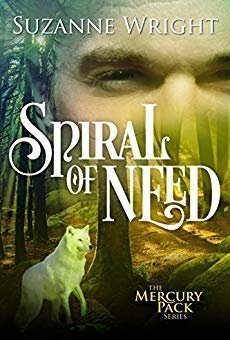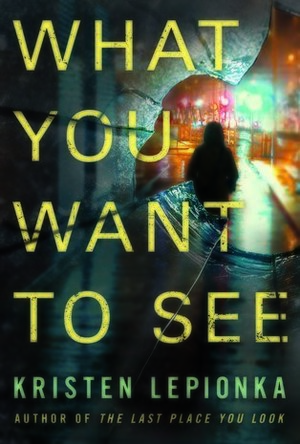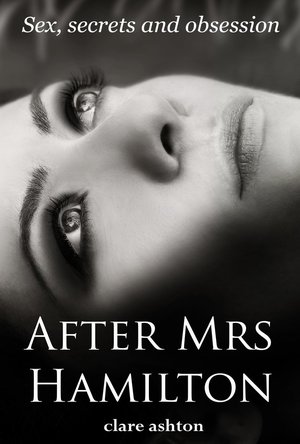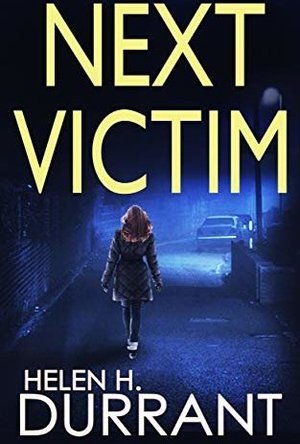KittyMiku (138 KP) rated Spiral Of Needs in Books
May 23, 2019
The past haunts everyone in one way or another and creates a defense mechanism to help us cope. So in Derren's case of not wanting to trust anyone and being loyal to a fault when you earn his trust didn't come as a surprised. After all, trust is a valuable quality that is easily broken. But to watch him struggle at first with trusting Ally due to something one her kind had done to him in the past, was quite splendid. It allowed the reader to see how its not a group of people sharing a trait but the individuals that can hurt how the outlook on a particular group of people can negatively affect us. Even though in this case it was all paranormal traits, it is easy to see and understand where this comes from. People are always judging others by their skin color or position or whatever because of someone else sharing that quality had done something to them personally. This is a huge problem and some people never fully get over the fact it was the individual who was a complete jerk of whatever (for the lack of better words) and not the group of people who share that quality. An example would be gamers. They are often considered lazy, lacking social qualities and short tempered. While most games have some of these qualities, it should be noted that those aren't to define every gamer and those who have these issues also have redeeming qualities as well. So to say anyone who plays games for massive amount of time to have all those qualities and are bad fits because one gamer may have yelled, hurt, ignored, or whatever the case is towards you, is a terrible be thing. In Spiral of Need, it was pleasant to see and watch how one person can change someone's mind on a particular problem a certain category of people fall into, is amazing and makes you wonder if this will happen in your life. Will you be the one to help people see that your category of people aren't all bad? I know my husband, who is a gamer, did that for me, just as Ally, a Seer, did for Derren.
I, also, enjoyed how even though the book had some XXX Rated scenes, it was also very much about building relationships with unlikely characters who was thought to be a problem and coming together to protect one another. Not many of our communities and societies can say that these days. It was amazing to see someone considered to be an outsider at the beginning develop a lasting friendship and place in a pack or community because of her own moral compass making her due things that she felt was only the right thing to do. I personally feel, this book addressed problems we face everyday in our world while keeping it from hitting to close to home to make it uncomfortable. It showed some of the most important qualities that all relationships, no matter the kind (examples being friendships, partnerships, etc.) needed to keep them healthy and how it can be harmful when others view someone as a threat of a problem to be eliminated. With every addressed in this book, I would say I was pleased at how smoothly is ran.
I would rate this book 4 stars out of 5 stars simply because I longed for a little more conflict but loved how it addressed issues and solved the problems it did have residing in the pages. I would recommend this book to anyone who loves a good werewolf love story.
Kristy H (1252 KP) rated What You Want To See (Roxane Weary #2) in Books
May 10, 2018
I loved this book. I love the first person aspect. The Roxane Weary series is straight-up great mystery writing. No unreliable narrator, no chapters that alternate POV or time periods, no gimmicks--just an excellent protagonist and a strong plot. It makes you long for mysteries of old (think Kinsey Millhone). The ways I love Roxane cannot truly be enumerated--she's a female lead in a mystery series, for one. She's smart, witty, and sarcastic. She's bisexual, but this characteristic is just who she is, not her main defining element or the entire defining point of the novel. As a bisexual female, I cannot stress how amazing this is in literature. To have bisexual representation (and have that representation be intelligent, funny, and not portrayed as evil and deviant), well, it's wonderful. She has relationships of all kinds and works on figuring out herself, just like any other person. Gasp! Imagine that. I couldn't love Roxane more (or Kristen Lepionka for creating this character). Also, Roxane calls waffles "golden beauty" and well, what more do you need in your PI? She's the Leslie Knope of private investigators.
I was worried that the second Roxane Weary novel wouldn't stand up to the first, but I was anxious for no reason. The second book is just as wonderful and intricately crafted as the first, and we get to see Roxane both struggling and growing professionally and personally. The case is a great one--it had me frantically reading and totally shocked me at the end, which I love. So rarely can a detective novel keep me guessing to the anymore. Marin Strasser is quite the character, and her web of lies pulls in a whole host of supporting characters.
We also see Roxane navigating new territory with Tom, her former lover (and, as mentioned, her dad's ex-partner), and get appearances again from the appealing Weary brothers and Roxane's mom. Roxane is still working on her relationships--not just romantic ones, but life ones, and you'll be touched as she figures out trying to be a "surrogate aunt" to Shelby, who appeared in book one. Watching her let her guard down at times is enjoyable.
The case is still mainly the star, though, and it won't disappoint. It's complicated and intriguing and everything comes together in ways that will make you gasp and keep you riveted. I was definitely shocked several times while reading. Not to mention I love it when an author can write a character that I truly hate--you know they've done a good job when you can feel that anger viscerally through the pages!
Overall, I have nothing bad to say about this book. Maybe that it's over, and I have to wait now for a (hopeful!!) book three? I love Roxane. I feel kinship toward her for sure, this sarcastic, bisexual PI whose still navigating the world around her. The mystery in this book won't disappoint, nor will the characters. If you haven't read the first Roxane Weary novel, I do recommend reading it first (mostly because it's also so good), but this will stand on its own. Highly recommend!!
I received a copy of this novel from the publisher and Netgalley in return for an unbiased review. More at http://justacatandabookatherside.blogspot.com/.
honingwords (32 KP) rated After Mrs Hamilton in Books
Jul 5, 2018 (Updated Jul 6, 2018)
Ever.
In any genre.
Normally when I recommend a book to a friend I’ll drop it into conversation. If I really like it I’ll send you a link to a review and follow up a few days later with a question on how you got on with it.
With this one I bought you your own copy, cos you ain’t getting mine, I opened it at the beginning and thrust it into your hands, I took your phone off the hook AND I rang your boss to tell her you won’t be in tomorrow morning.
Here’s a duvet for you too - you’ll be under it until the end.
Did I say favourite book?
Of all time.
And quite rightly so. It’s an absolute masterpiece.
This was my Book Club’s book of the month and it was suggested to me at a time when I was becoming jaded with the sheer number of books set in America, which I’d been reading up to then. It opened me up to an author I’d never heard of before, who sets her books in England and Wales. One who has come up with an original plot that starts off gently unfolding, before twisting and turning to a most unpredictable ending.
I absolutely devoured it.
I wanted to re-open it immediately the last page closed, but forced myself to wait using the interim to read Clare Ashton’s other books in quick succession. I had to see if the absolute need to re-immerse myself in her addictive, easy to read, rich in description, style would continue to be as strong. Also, I needed a clear period of time in front of me to allow for the fact the characters would take over my life again.
After over ten years of reading lesfic Clare Ashton is now the one I use to compare all other authors. I’m slightly worried that I can’t decide which of her novels is my favourite, but as this is the first one I read, it probably takes pride of place.
I’d say there are five or six characters to pay attention to but Clo is the main one. The plot revolves around her friends and family but, more specifically, it is woven around a web of coincidences. Coincidences about people who each have secrets and who may have known each other in the past, coincidences about where they lived and met, coincidences about how their pasts and futures may be intertwined.
Coincidences which prove just how small the world really is, especially if you ever lived in Middle Heyford.
Clare deals with two taboo subjects. The first is that Clo works for Marella as an escort to women. (“Prostitution. You can call it what it is,” says Clo.) She uses the income to allow her to care for her arthritic grandmother Amelia.
The second taboo subject I will let you find out for yourself, but for the record, I am not squeamish about it and think Clare was extremely brave to include it. I found myself nodding along with Clo’s reaction.
The novel begins with Marella interviewing her new client, Mrs Hamilton. Marella is the lynch pin to everything, yet we learn little about her throughout the book and she isn’t in many scenes. She is vitally important; there would be no story without her, yet Clare manages to allow Marella to stay mainly in the shadows. I would very much like to see future stories with her in them and think it is a huge shame Clare has no plans to visit this storyline again.
Clo knows Laura from university and Susan from living in Middle Heyford. Clo’s grandmother Amelia is the mother of Alice who has a special page all to herself in my imaginary book “People I’d Like To Punch In The Face” and Helen is Susan’s dead Mother’s sister. The intricate relationships between the characters are all explained as you go along but it is difficult to keep them all straight in your head, unless you either pay very good attention, or draw an L Word type chart for them, which is what I ended up doing.
Mrs Hamilton tells us she is fifty-four and throughout the book Clare refers to her, and certainly Mrs Hamilton thinks of herself, as an older woman. Clo meets with her professionally at the beginning and it is their mutual attraction which is explored throughout the rest of the book. There is an age difference there but it is not an issue for either of them.
There is a little part of me which wants to rebel against the idea that fifty-four is old though, and I wonder now that since the publication of the book was in 2012, and Clare is five years closer to Mrs Hamilton’s age now, would she still consider fifty-four year old skin to be ageing and mottled?
On that point, with me coming along five years after publication, I have to say there is nothing in the novel to date it. It is as fresh today as it would have been back then. Five years isn't long enough to notice too much, but I’m going to predict that readers in another twenty years will be saying this novel is ‘timeless.’
By necessity, there are a few back stories to wade through - the two main sets of characters could, possibly, have been dealt with in two books instead of one. At 308 pages this is a fairly long book, at the beginning it flows a tad more slowly than in the later chapters, but I’m sticking with my first impressions on it, and I wouldn’t have wanted Clare to have handled it any other way.
I like all the main characters. Amelia is so important to Clo and I am relieved when she returns home after a trip away and want to hug her! I like Laura, but feel she may be a high maintenance friend! I think Susan and I would be friends in real life. Clo’s father, Edward is a frustrating coward of a man, but is in an important scene with Clo’s lover and I melted a little towards him when she blurts out “I’m in love with your daughter’” and he says “Well I had gathered that.” Other than Clare’s well-written sex scenes this, and the few paragraphs leading up to it, would be my favourite part of the book.
One character has to deal with what I would suggest is a ‘betrayal by omission’ - others, those closest to her, know facts about her but don’t let her in on the secret. When it all comes out she seems able to accept this, after only a very short time adjusting. This isn't something I could have coped with and this is the one thing that made me uncomfortable during the book and the time mulling it over immediately after.
There are three points in this story when I spoke out loud. There was an
Oh!
A
Huh!
And finally an
OH MY GOD!
There is a split at the end - one side gets their happily ever after and the other story is one where we are left with a total absence of a conclusion. It was about a day later before I realised I didn’t know what happened with that story line and had to go back and reread the ending! Yup, there is nothing - we are left to make our own minds up!
Clare has been known to say that she is in denial about her breast obsession, but there are no fewer than 50 times the word ‘breast’ is used in this book and I loved every single one of them! I’m hoping she continues to not have any breast obsession in her future work!
After finishing the book the first time I added a category to help me rate books I am reviewing. I added “Should this be made into a film?” because it was a most definite YES! for After Mrs Hamilton.
The second time round I am about to add another category: Would I cherish a signed copy of this book? Errr YES!
My advice is to read this once. Then, with the knowledge you have at the end, go and read it again. Clare has so many clues and references cleverly placed throughout which you may think are just lovely details at the time, but they are actually very important to being able to fully understand the book.
It’s nearly impossible to sleep until this story is fully unravelled. Read it during a weekend when you have no work to worry about because otherwise you will want to pull a sickie.
Billie Wichkan (118 KP) rated Next Victim (DCI Rachel King, #1) in Books
May 22, 2019
Leaving the chaos of her home behind her, she arrives at a grizzly scene. A young man has been tortured, cut up and burned then tossed into the canal. There are few clues, a homeless man who heard the cries of the young man while being tortured can give them no help.
And then another body appears on the scene. The only apparent link is that they are gay, beautiful young men.
While all this is happening, Rachel’s younger daughter is kidnapped but there is nothing to suggest where the murderer might have taken her. Meantime, Rachel is trying to keep her relationship with the crime boss a secret from her team but relies on him to help find her daughter.
This is the first book in a new police procedural series, featuring DCI Rachel King and her sidekick DS Elwyn Price, set in and around Manchester. The novel is a police procedural with lots of action.
You will find plenty of twists and turns in this thriller which will keep you on the edge of your seat.
The characters and plot are well developed and I couldn't read this fast enough as I was so gripped with the story.
I think this is gonna be another great series from this fabulous author.
Many thanks to Joffe Books via Netgalley for my digital copy.

Touchstones: Daily Meditations for Men in Recovery
Book and Health & Fitness
App
Find inspiration anywhere, at any time, with Hazelden Publishing’s Touchstones app featuring all...
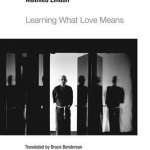
Learning What Love Means
Mathieu Lindon and Bruce Benderson
Book
"I loved Michel as Michel, not as a father. Never did I feel the slightest jealousy or the slightest...

Modern Cross Stitch: Over 30 Fresh and New Counted Cross-Stitch Patterns
Book
Pick up a needle and thread and be inspired by these delightful, contemporary cross stitch designs....
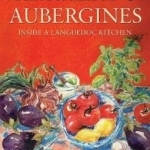
Arrazat's Aubergines: Inside a Languedoc Kitchen
Book
In the sequel to Virgile's Vineyard, Patrick Moon explores the world of Languedoc food and cuisine....
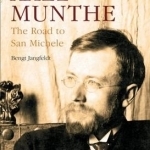
Axel Munthe: The Road to San Michele
Book
Axel Munthe: The Road to San Michele' tells for the first time the riveting life-story of an...
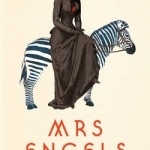
Mrs Engels
Book
Longlisted for the Guardian First Book Award Love is a bygone idea, centuries-worn. There are things...
